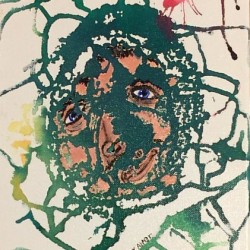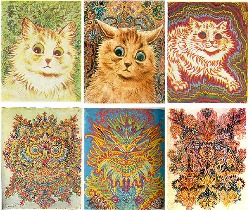Schizophrenia. We hear the word thrown around on a regular occurrence: in popular culture, in the news and in social conversations, but did you know that most of the time people get its meaning wrong? So what actually is schizophrenia?
 Believe it or not, schizophrenia has nothing to do with having different personas – that’s called multiple personality disorder – and schizophrenics aren’t crazy. A major symptom of schizophrenia is having hallucinations, which are often auditory (hearing things) or somatosensory (feeling things). Imagine feeling a numbness or separation from the entire body or individual body parts, also known as depersonalisation. This means someone might see their hands typing at the keyboard (like mine are now) but feel as if they belong to somebody else (nope, these are definitely my hands, phew!).
Believe it or not, schizophrenia has nothing to do with having different personas – that’s called multiple personality disorder – and schizophrenics aren’t crazy. A major symptom of schizophrenia is having hallucinations, which are often auditory (hearing things) or somatosensory (feeling things). Imagine feeling a numbness or separation from the entire body or individual body parts, also known as depersonalisation. This means someone might see their hands typing at the keyboard (like mine are now) but feel as if they belong to somebody else (nope, these are definitely my hands, phew!).
The Queen of France
Also common are delusions and there are lots of different types. A schizophrenic person could have the unwavering belief they are ‘the Queen of France’ (but not have a separate personality that is the Queen!), which is known as a delusion of grandeur. Or they might have delusions of: persecution, in which they believe that they are being followed or victimised; reference, believing that they are being referred to for example on the tv; or thought broadcasting, worrying that other people can hear their thoughts via something like radio signals. These latter three delusions (persecution, reference and thought broadcasting) are often grouped together and simply referred to as paranoia, hence we get the term ‘paranoid schizophrenic’.
 Some symptoms of schizophrenia affect speech and communication, and can lead to the person being mistaken for a bit dim-witted or ‘weird’. For example, a person could have confused speech where there might be no flowing coherence (called loose connections); no meaning conveyed, despite being grammatically correct (poverty of content); or full of made up words or normal words used in bizarre concepts (neologism).
Some symptoms of schizophrenia affect speech and communication, and can lead to the person being mistaken for a bit dim-witted or ‘weird’. For example, a person could have confused speech where there might be no flowing coherence (called loose connections); no meaning conveyed, despite being grammatically correct (poverty of content); or full of made up words or normal words used in bizarre concepts (neologism).
Schizophrenia can also cause difficulties with perception and attention. For example a sufferer may struggle to concentrate on one person in a busy crowd. Some experts have suggested that people with these symptoms find regular environmental stimuli too much and can develop something called ‘catatonia’ to deal with it. Catatonic schizophrenics seem to switch off to the outside world, become glassy-eyed or can get stuck in any pose that somebody moves them to, however peculiar. Other symptoms can include emotional disturbances, such as severe apathy or inappropriate responses (such as laughing hysterically at sad news).
Blame the Greeks!
 The onset of schizophrenia usually happens in a person’s late teenage years or early twenties and research suggest that genetics and the biology of the brain may be important contributory factors. However, schizophrenia and the exact causes are unknown – we know less about our brains than about our galaxy! So, if schizophrenia has nothing to do with split personalities, how come that’s what most people think? Blame the Greeks! Or at least who ever chose the name ‘schizophrenia’. In Greek ‘skhizein’ means ‘to split’ and ‘phren’ means ‘mind’ and so, over time, ‘split mind’ has become ‘split personality’ and everyone started being wrong.
The onset of schizophrenia usually happens in a person’s late teenage years or early twenties and research suggest that genetics and the biology of the brain may be important contributory factors. However, schizophrenia and the exact causes are unknown – we know less about our brains than about our galaxy! So, if schizophrenia has nothing to do with split personalities, how come that’s what most people think? Blame the Greeks! Or at least who ever chose the name ‘schizophrenia’. In Greek ‘skhizein’ means ‘to split’ and ‘phren’ means ‘mind’ and so, over time, ‘split mind’ has become ‘split personality’ and everyone started being wrong.
The cats were painted by schizophrenia suffer Louis Wain and are in the public domain. The other painting, used under a Creative Commons License, is by Tony Alter and the embroidery is by cometstarmoon, used and edited with thanks under a Creative Commons License.